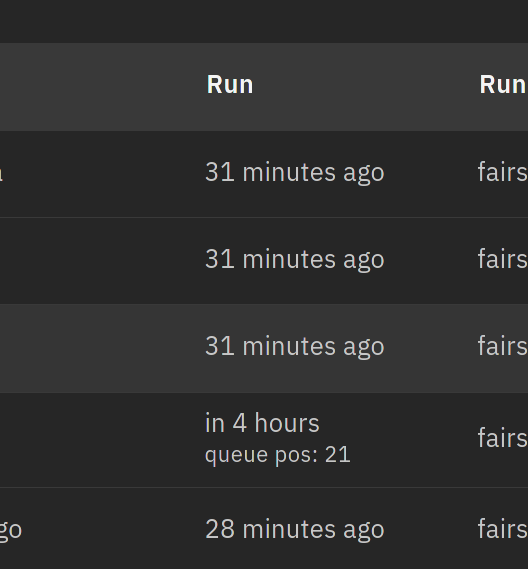The IBMQ web interface shows both queue position and an approximate execution time for every pending job (see image below). Is there a way to retrieve this information via Qiskit? I know that qiskit.providers.ibmq.job.IBMQJob has a queue_position() method, but what about the approximate execution time?
Thanks in advance!


